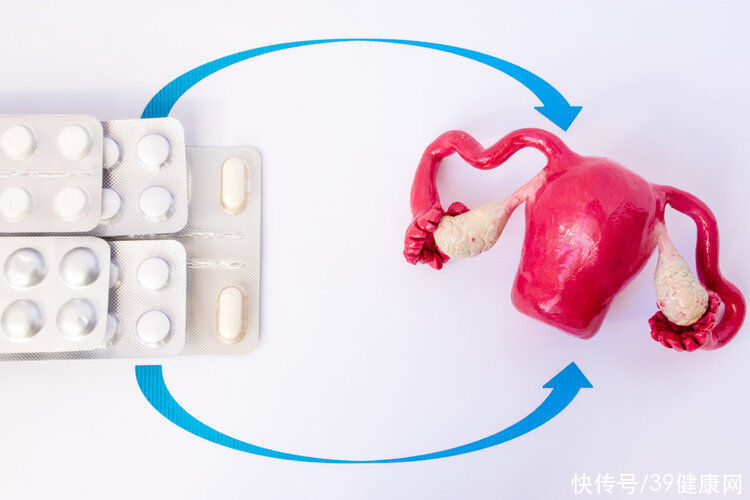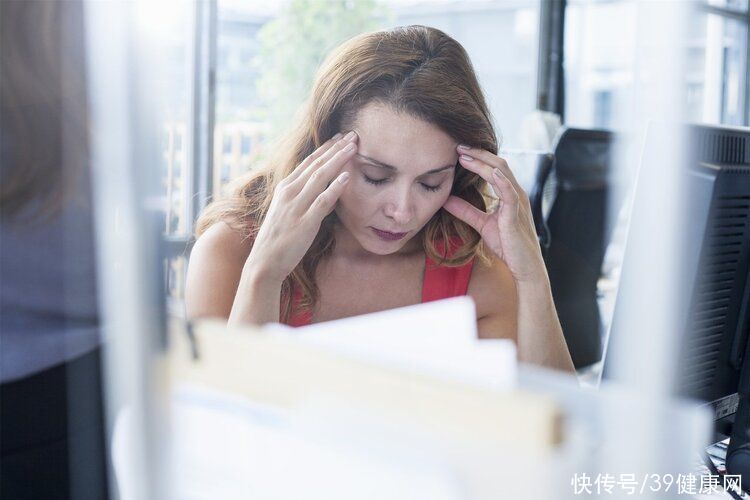內容目錄
“Doctor, I’m going crazy. In the past year, my periods have been very irregular. Sometimes they come and sometimes they don’t. This time I haven’t had my period for two months. Is it normal?”
“You’re 53, which is normal.”
“Ah? Menstruation is so irregular, is it normal? Please help me to find out if I should prescribe any medicine, and adjust it.”
“In this case, it depends on the age. span>
Ms. Zhang has had irregular menstruation in the past year. She was worried about some gynecological diseases. She went to the hospital for consultation, but the doctor told her that it was a normal manifestation of menopause. Menopause is mentioned by many women who express resistance. For them, menopause means aging. Today we are going to talk about menopause.

First, the earlier the menopause, the shorter the life span?
Liu Zhen, an attending physician in the gynecology clinic of the Third Affiliated Hospital of Guangzhou Medical University, said that the reproductive aging period of women is usually divided into three stages: reproductive period, menopausal transition period, and postmenopausal period. Symptoms of menopause often appear later in the menopausal transition.
The true meaning of menopause isthe failure of a woman’s ovarian function, the permanent cessation of menstruation. Generally speaking, menopause is defined as the absence of menstruation within 12 months of the last menstrual period.
For women, menopausemeans that there is no estrogen and progesterone in the body, and the body begins to age< span>. The initial effects may be hot flashes, sweating, irritability, vaginal mucosal atrophy, pain during sexual intercourse, skin aging and other symptoms in the mid-term, and cardiovascular, metabolic problems, and osteoporosis may also occur in the late stage.
However,there is no evidence that late menopause is associated with a shorter lifespan. However, Liu Zhen said that women who go through menopause early will have an increased risk of disease because the body loses the protection of estrogen.

Second, the later the menopause, the better?
Women’s ovarian insufficiency starts at about age 40 and lasts as short as 1 to 2 years and as long as 10 to 20 years. The average menopause time of Chinese women is 49.5 years old, and 80% are between 45 and 54 years old. Menopause time can generally be divided into 4 stages:
- premature menopause before age 40
- 40 -44 years old is early menopause
- 45-55 years old is normal menopause
- after 55 years old is delayed menopause
Of course, there are differences in the natural age of menopause for women in different countries, races and regions, but the fluctuation range is basically between 44.6 and 52.0 years old.
Does later menopause mean slower aging? Actually not. People who are over 55 years old and have not had menopause are basically late menopause, so they should be vigilant.
Late menopause, estrogen maintains high levels in the body for a long time, which may often indicate the risk of malignancy. Such as endometrial cancer, ovarian epithelial cancer, breast cancer, etc., estrogen remains high, which can promote the occurrence of estrogen-related tumors.
Of course, late menopause does not necessarily mean that there is a problem, some people still have menstrual cramps after the age of 60, and there is no physical abnormality, so the time of menopause varies from person to person.

Third, if these symptoms appear on the body, it may be about menopause
< span>Before menopause, what physical changes can women use to determine whether they are about to menopause?
·Mstrual disorders
This is a more common symptom before menopause, and it is also a common symptom of many women Doubt the basis of their impending menopause. Although menstrual disorders, everyone behaves the same. Some people may have a short cycle and then a long cycle, while others may come twice a month, and the amount is still large. If you find that your menstrual cycle is different from before, and your regularity has changed, you should be alert to whether it is a near menopause.
·hot flashes
recurrent transient facial flushing, sweating, and One of the characteristic manifestations of menopausal women is called hot flashes. General symptoms may last for 1 or 2 minutes and appear several times a day. This kind of symptoms will improve after about a year for some people, and some people may last for 5-10 years.
·Irritability
When women approach menopause, estrogen in the body The level begins to decline, the entire endocrine system is affected, and some neurological symptoms are also caused, which manifests as greater mood swings, easy anger, depression, and difficulty in controlling emotions.

·palpitation, insomnia p>
During menopause transition, hormonal changes will affect the regulation of autonomic nerves, causing women to have difficulty falling asleep,Repeated insomnia, palpitation, dizziness, and even headache, tinnitus and other discomfort.
·Difficulty urinating, dysuria
Women may also experience difficulty urinating before and after menopause This is also caused by a drop in estrogen levels, which can lead to frequent urination, urgency, painful urination, and even repeated urinary tract infections.
In addition, perimenopausal women may also experience symptoms such as back pain, joint pain, vaginal dryness, and intercourse pain. When these symptoms occur, it is best to check the ovaries function to determine whether it is caused by menopause.

4. How to get through perimenopause smoothly?
Perimenopause women have to endure various “unfamiliar changes” brought about by the physiological stage, and their body and mind will fall into anxiety and fear. How should women at this stage go through the critical period smoothly?
First, ask your doctor for help. If the discomfort of perimenopause has affected normal work and life, please remember: you can seek medical help.
Endocrine clinic or gynecology clinic are good choices, although other organs may also be involved in perimenopause If necessary, seek professional help from orthopedics, breast surgery, endocrinology and other specialists.
In addition, a series of changes in perimenopause are related to the decline of estrogen levels in the body, so hormone replacement therapy has become a magic weapon for the treatment of perimenopausal syndrome. However, it should be noted that medication should be taken under the guidance of a doctor, and do not use estrogen drugs or health products indiscriminately.
If it doesn’t affect your daily life, you can actively adjust your lifestyle. Pay attention to nutritional balance and supplement vitamin D and calcium appropriately; ensure adequate sleep every day; maintain a positive and optimistic attitude towards life, and communicate more with family and friends; maintain about 150 minutes of moderate-to-high-intensity exercise every week; Breast cancer, cervical cancer, three high-level detection.

Menopause is a fact that every woman cannot escape, just like when you are adolescence, pregnant with The ignorant and unknown welcome its arrival, and we must also learn to accept and face its departure.
References:
[1] “The sooner the menopause, the shorter the life span? I don’t know about these menopausal symptoms…”. The Third Affiliated Hospital of Guangzhou Medical University. 2020-09-11
[2] “The menstrual flow is getting less and less, is it old? 》. Tencent Medical Code. 2021-07-04
[3] “Super comprehensive “menopause” care guide, collection for mother and yourself! “. Tencent Medical Code She Knows. 2022-03-30
Reprinting is prohibited without the author’s permission